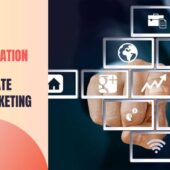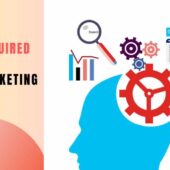Table of Contents
ToggleCorporate Digital Marketing Training Program: Key Components and Best Practices
“Wisdom… comes not from age, but from education and learning.” ― Anton Chekhov
A comprehensive corporate digital marketing training program is essential for equipping teams with the competencies and knowledge required to excel in the rapidly changing digital circumstances. Corporate training on a comprehensive digital marketing program must contain a curriculum covering the essential skills and knowledge needed to become successful in the digital marketing field. This program should address foundational concepts and advanced strategies, providing hands-on experience and practical insights.
The program should achieve the following objectives:.
- Participants should acquire the skills to create strategies for effective digital marketing promotions and execute them
- Provide an understanding of various digital marketing channels and tools.
- Members could clearly interpret data from digital marketing campaigns and analytics tools and make informed decisions.
- Foster creativity and innovation in digital marketing campaigns.
Corporate Training Digital Marketing Program Key Components:
- Foundational Knowledge: Exploration of the digital ecosystem, including websites, social media, search engines, and mobile. Introduction of the core concepts, like digital channels, digital marketing funnel, customer journey, and the function of digital marketing in the overall marketing approach in today’s business scenario.
- SEO and Content Marketing: SEO Fundamentals like keyword research, on-page and off-page optimization, technical SEO, and measurement of SEO success. A steady focus on creating high-quality content that aligns with brand goals engages the target audience and supports SEO efforts.
- Paid Advertising (PPC): Campaign creation, keyword targeting, bidding strategies, and performance analysis in the Google Ads platform. Paid campaigns on social media platforms, e.g., Facebook, Instagram, and LinkedIn.
- Social Media Marketing: Marketing strategies for major platforms like Facebook, Instagram, LinkedIn, and X (formerly Twitter). Best practices on engaging with audiences and building a community around the brand.
- Email Marketing: Design of effective email campaigns, segmentation of audiences, and personalized content. Automation tools and strategies to enhance email marketing efficiency and effectiveness.
- Analytics and Data-Driven Decision Making: Explore analytics tools (e.g., Google Analytics) for the purpose of tracking and analyzing website performance. Define key performance indicators (KPIs) and metrics to measure the success of digital marketing efforts.
- Emerging Trends and Technologies: Influence of AI and machine learning on digital marketing tools and approaches. Effect of voice search and the importance of mobile-friendly content. Potential usage of VR (Virtual Reality) and AR (Augmented Reality) in marketing.
- Compliances and Ethical Considerations: Explore laws like GDPR and CCPA and their impact on digital marketing practices. Promotion of transparency and ethical behavior in all marketing activities.
Corporate Training in Digital Marketing Program Best Practices:
Customized Training
Making sure that the corporate training program meets the specific requirements and goals of the organization, considering the industry, target audience, and current digital maturity level of the participants. For instance, a B2B company might focus more on LinkedIn marketing, while a B2C company might prioritize Facebook and Instagram strategies.
Interactive and Hands-On Learning
Inclusion of practical exercises and real-world projects to help participants apply what they learn. Case studies to demonstrate industry’s successful digital marketing strategies and approaches.
Continuous Learning and Updates
Digital marketing constantly evolves; the program should include new trends, tools, and best practices. Learning resources and platforms for skill enhancement.
Expert Instructors and Industry Insights
Inclusion of experienced and highly skilled digital marketing professionals to lead the corporate training program and share their insights. Involvement of guest speakers from the industry to discuss current challenges and innovations.
Measurement and Feedback
Assessments and feedback mechanisms to assess the effectiveness of the program and recognize areas for improvement, if any. These could include regular quizzes to test understanding, project evaluations to assess practical application, and anonymous surveys to gather participant feedback. Also encourage participants to provide feedback on the program’s content and delivery.
Certification and Recognition
Offer certifications or badges to participants who complete the training, giving them a tangible acknowledgment of their skills. While implementing the corporate training program, it’s better to consider the following:
- An assessment to identify the current skill level of participants and tailor the program accordingly.
- Combinations of online and in-person training sessions to accommodate different learning preferences and schedules.
- Involvement of cross-functional teams to foster collaboration and a unified approach to digital marketing.
Bottomline:
By incorporating these components and best practices, a corporate digital marketing training program can effectively equip teams with the skills needed to succeed in the digital marketing landscape. This program should be dynamic and adaptable to changes in technology and consumer behavior, ensuring participants stay ahead in their professional journey and achieve organizational goals.
Also check:








